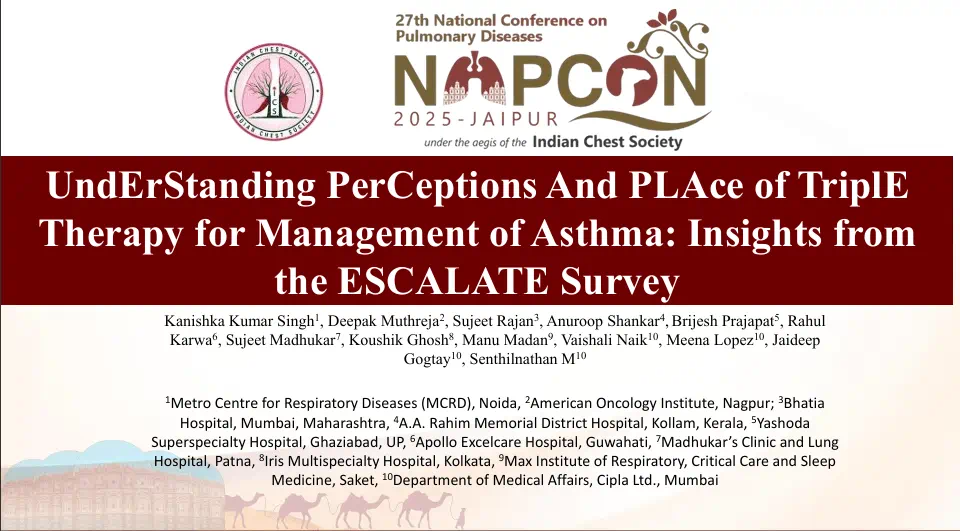ATS 2023: Clinical Practices and Barriers to the Use of Single Maintenance and Reliever Therapy for Asthma
Introduction: Single maintenance and reliever inhaler therapy (SMART) has emerged as a promising approach for managing asthma, offering significant reductions in asthma exacerbations for patients with moderate asthma severity. Recognizing its clinical effectiveness, both the National Asthma Education and Prevention Program and the Global Initiative for Asthma have incorporated SMART into their asthma management guidelines. However, despite its proven clinically effectiveness, challenges persist in the widespread implementation of SMART in real-world clinical practice. Our study aimed to gain insight into the practices of pulmonary clinicians regarding SMART and to understand their perspectives on the barriers hindering its implementation.
Methods: This study assessed the outcomes of an electronic survey distributed through Qualtrics to pulmonary clinicians affiliated with a single academic medical center. The survey encompassed inquiries regarding clinicals’ practice patterns related to SMART usage, as well as their perceptions of barriers impeding the implementation of SMART. Upon completing the survey, clinicians were given the opportunity to provide additional input and express any concerns regarding the prescription of SMART.
Results: In our study, 41 pulmonary clinicians participated in the survey, with demographic characteristics revealing that 46% were male, 60% were white, 68% fell within the age of 31 to 50, and 59% dedicated over half of their time to clinical work. The findings indicated that 93% of pulmonary clinicians were aware of the inclusion of single maintenance and reliever therapy (SMART) in the updated asthma management guidelines. However, a lower proportion (71%) had actually prescribed SMART, and among those who did, 72% reported prescribing it to eligible patients less than 40% of the time. Notably, 85% of clinicians believed that SMART was an effective management strategy, with 91% considering it more convenient for patients and 71% acknowledging its potential to reduce the risk of asthma exacerbations. The most commonly reported barriers to prescribing SMART included lack of insurance coverage (54%), patient understanding regarding the use of SMART (32%), and patient unwillingness to change their inhaler strategy to SMART (32%). One clinician wrote, “For patients with long standing management using as needed salbutamol, SMART has been challenging to implement. We offer patients a time limited trial, but this has had varying success to date.”
Conclusions: Although a majority of pulmonary clinicians are aware of the updated asthma guidelines recommending SMART and acknowledge its effectiveness, most clinicians do not routinely prescribe SMART due to substantial barriers including a lack of insurance approval, poor patient understanding of SMART usage, and patient’s unwillingness to change their inhaler strategy. Addressing these barriers necessitates enhancements in insurance coverage and the implementation of patient education and self-management strategies to facilitate the transition to SMART therapy.
American Thoracic Society (ATS) 2023 International Conference, 19th May - 24th May 2023, Washington DC.



